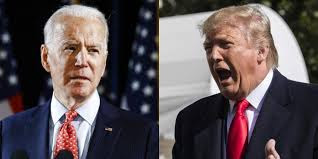 |
| Potential lifesaver but also source of international tension |
If you’re thinking, “yeah, OK, obviously, duh”, then I’d have to agree with you. For two reasons.
The first is that nothing could be easier than to manage things when they’re running smoothly. I mean, I’ve never had a flying lesson, but I could pilot an airliner while everything’s going well. Watch the clouds while the autopilot flies the plane? Yep, I reckon even I could manage that. Just don’t ask me to do anything complicated, like, say, changing course.
The second reason is that normal conditions just don’t apply in politics. Take a look at the century so far. It started with wars in Iraq, Afghanistan, Libya and Syria, and that was just the Western powers. We had the crash of 2008. We’d barely begun to emerge from that when Brexit blew the EU open and the election of Donald Trump turned the US into the nation state equivalent of a truculent teenager.
Perpetual crisis is maybe why leaders get exposed so quickly.
Take Donald Trump himself. For three years, he stumbled along, making himself a laughingstock and his country look dangerously stupid, but he was sustained by relatively good economic news, and it didn’t matter that he’d inherited most of it.
Then along came Covid. He was revealed for what his opponents had always said: an incompetent unable to grasp the gravity of a crisis, choosing denial over decision, precipitating the worst failure of national will in US history. Before he even left office, US Covid deaths had overtaken the numbers killed in the Second World War.
The result? Trump was roundly beaten for re-election, in a result he called a “landslide” when it went his way four years earlier, but refused to acknowledge when it went against him. Other contests on the same day showed him performing less well than his Republican Party. It was Trump, rather than the Republicans, that voters chose to dump.
In Britain, Prime Minister Boris Johnson at first took as casual an attitude to the pandemic as Trump. Remember his gleeful announcement? “I was at a hospital where there were a few coronavirus patients and I shook hands with everybody.” Weeks later he was in Intensive Care, tying up resources that would have been available for other patients if he hadn’t been so irresponsible.
Since then, he's taken action too late and too little to bring the crisis under control. Now the UK has the worst Covid mortality rate in the world.
It isn’t just the right that has produced politicians as weak and as exposed by crises as these two. Again in Britain, the Labour Party, in one of its periodic fits of irrationality, plucked a Member of Parliament from well-deserved obscurity, to which it has since again relegated him, and made him leader. Like Donald Trump, Jeremy Corbyn – a name you may remember if you like to keep up with has-never-beens – still retains residual support amongst people who say things like “what a leader he’d have been without Brexit”.
Unfortunately, Brexit was his crisis to face. He needed to rise to the challenge. Instead, he ducked and flailed and avoided ever taking a position, hoping to retain support from both Brexiters and Remainers, but ultimately winning only distrust from everyone. As with Trump, the approach ended in unqualified failure. In his case, that was the worst Labour election result for four generations.
Would-be leaders never have an easy ride. Crises are inevitable. It’s how they deal with them that matters.
So the behaviour over Astra Zeneca’s failure to fulfil the EU’s order for Covid vaccines is highly revealing. And far from edifying. For anyone concerned.
 |
| Ursula von der Leyen and Boris Johnson The EU and UK not playing together nicely |
Britain, as ever under Boris Johnson, or the US under Trump, is behaving like a sullen teenager. “I’ve got my vaccines and I’m damned if I’m giving any up.” The government claims its entitlement is clear. It signed its contract before the EU, and that contract entitles it to all UK production. Britain will pass on to others only any excess it eventually finds it has. “I’m all right, Jack, and as a good Christian, I’ll help others only out of my leftovers”.
Of course, the UK could publish its contract with Astra Zeneca, so everyone can see it has priority for deliveries. But it refuses to, on the grounds of ‘national security’. That’s always been the bent politician’s excuse for hiding what it would be embarrassing to reveal.
The EU has published its own contract, though without the prices or order amounts. On the face of it, it does seem to support the EU’s argument: Astra Zeneca is obliged to supply vaccines, including from its UK facilities, to fulfil the order.
Then the EU rather spoiled things. Having been loud in its demands that vaccines be distributed equitably around the world, with priority for the poorest countries, it’s threatening to block vaccine exports if it doesn’t get the number of doses it wants. The talk was all of bridges, but when things turned difficult, up went the walls.
Not a pretty sight. No one involved comes out looking good from all this. But that’s the way with crises, isn’t it?
You get to see what leaders really are, however little they like it.

























